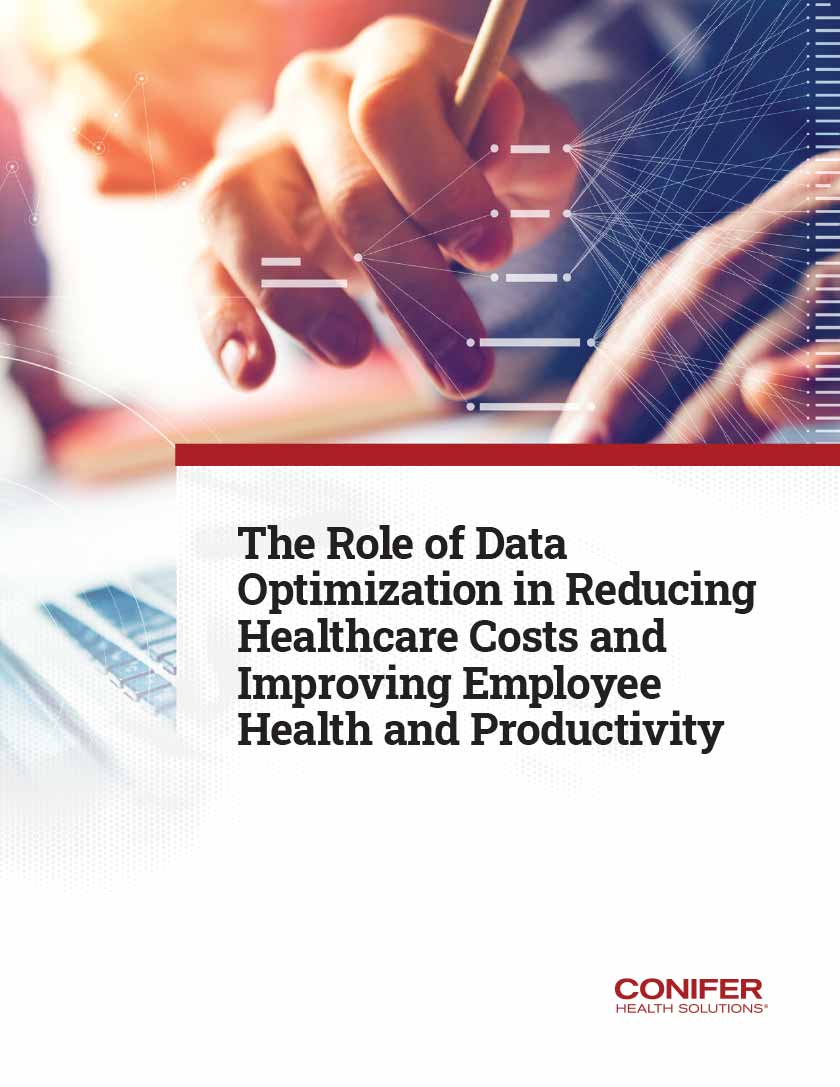
How Can You Improve Employee Health? It’s in the Data
To say that the healthcare industry generates a lot of data would be an understatement. How much is “a lot?” Approximately 30% of the entire world’s data volume is related to healthcare.1
But what purpose does all this data serve? For employers, this data can reduce healthcare costs for employees with high-risk conditions, creating more productive employees. When most industries face workforce shortages, having healthier, more productive employees is critical to short and long-term success.
The burdens of an unhealthy workforce
Today, 60% of adults in the U.S. have a chronic disease such as diabetes, heart disease, chronic kidney or lung disease, and even Alzheimer’s Disease and cancer. 40% have two or more chronic conditions.2
Healthcare organizations collect multi-terabytes of clinical, claims, environmental and social data on individual consumers each year that can be used to classify patient populations and to identify the highest-risk patients and patients who generate the greatest costs.
Because of the proliferation of high-deductible health plans, adults with chronic conditions are responsible for an increasingly larger portion of their healthcare costs—which has led many to make tough decisions, such as delaying care or not taking their medications as prescribed—with sometimes disastrous effects.
What does this mean for employers? According to the Centers for Disease Control, chronic health conditions cost U.S. employers $36.4 billion a year in reduced productivity due to absenteeism.3 In total, employers spend $575 billion each year due to their employees’ poor health.4
over the previous five years and 47% over the last 10 years.
In 2021, employers’ average health insurance cost was $16,253 annually to cover a family and $6,440 for an individual.5 This is a 22% increase over the previous five years and a 47% increase over the last 10 years.
And the pandemic made things worse. More than 60% of US adults gained weight during the pandemic. Far more than “the quarantine 15,” the average person gained 29 pounds, and 10% gained more than 50 pounds.6
In addition to weight gain, more than half of Americans say the pandemic has negatively impacted their mental health.7 By January of 2021, the number of individuals reporting anxiety and depression had quadrupled compared to pre-pandemic levels.
How data can help solve the issue
Healthcare organizations collect multi-terabytes of clinical, claims, environmental and social data on individual consumers each year that can be used to classify patient populations and to identify the highest-risk patients and patients who generate the greatest costs.
Leveraging this information, employers and their health benefits providers can enroll those employees in special care management programs to help them more effectively manage their conditions and improve their health overall.
How Conifer can help solve the issue
Conifer transforms health data into actionable insights that our Personal Health Nurses use to engage your employees and help them gain the most from your benefit plan.
Care to learn more?
Our recent whitepaper tells how Conifer helped one multinational manufacturer identify which of its 40,000 regional employees could most benefit for better care—and how this employer got a significant return on investment.
References
- https://www.rbccm.com/en/gib/healthcare/episode/the_healthcare_data_explosion
- https://www.cdc.gov/chronicdisease/resources/infographic/chronic-diseases.htm
- https://www.cdc.gov/chronicdisease/resources/publications/factsheets/workplace-health.htm
- https://www.healthleadersmedia.com/finance/employees-poor-health-cost-employers-575b-2019
- https://www.peoplekeep.com/blog/cost-of-employer-sponsored-health-insurance
- https://www.apa.org/news/press/releases/stress/2021/one-year-pandemic-stress
- https://www.kff.org/coronavirus-covid-19/issue-brief/the-implications-of-covid-19-for-mental-health-and-substance-use/



